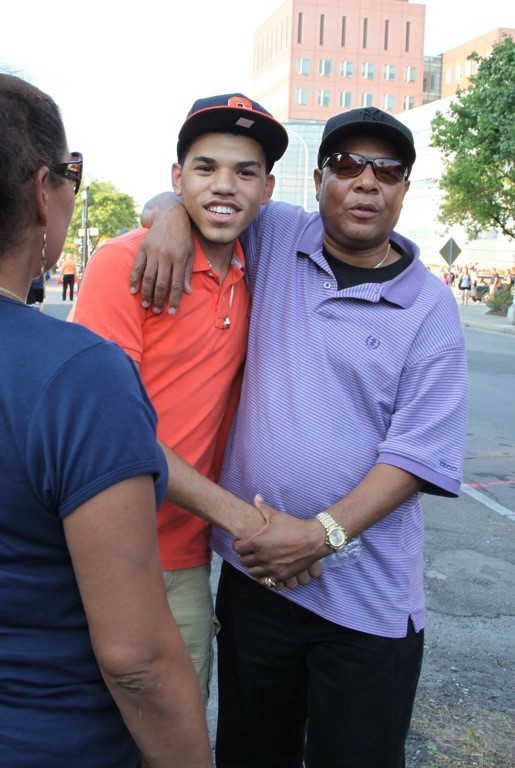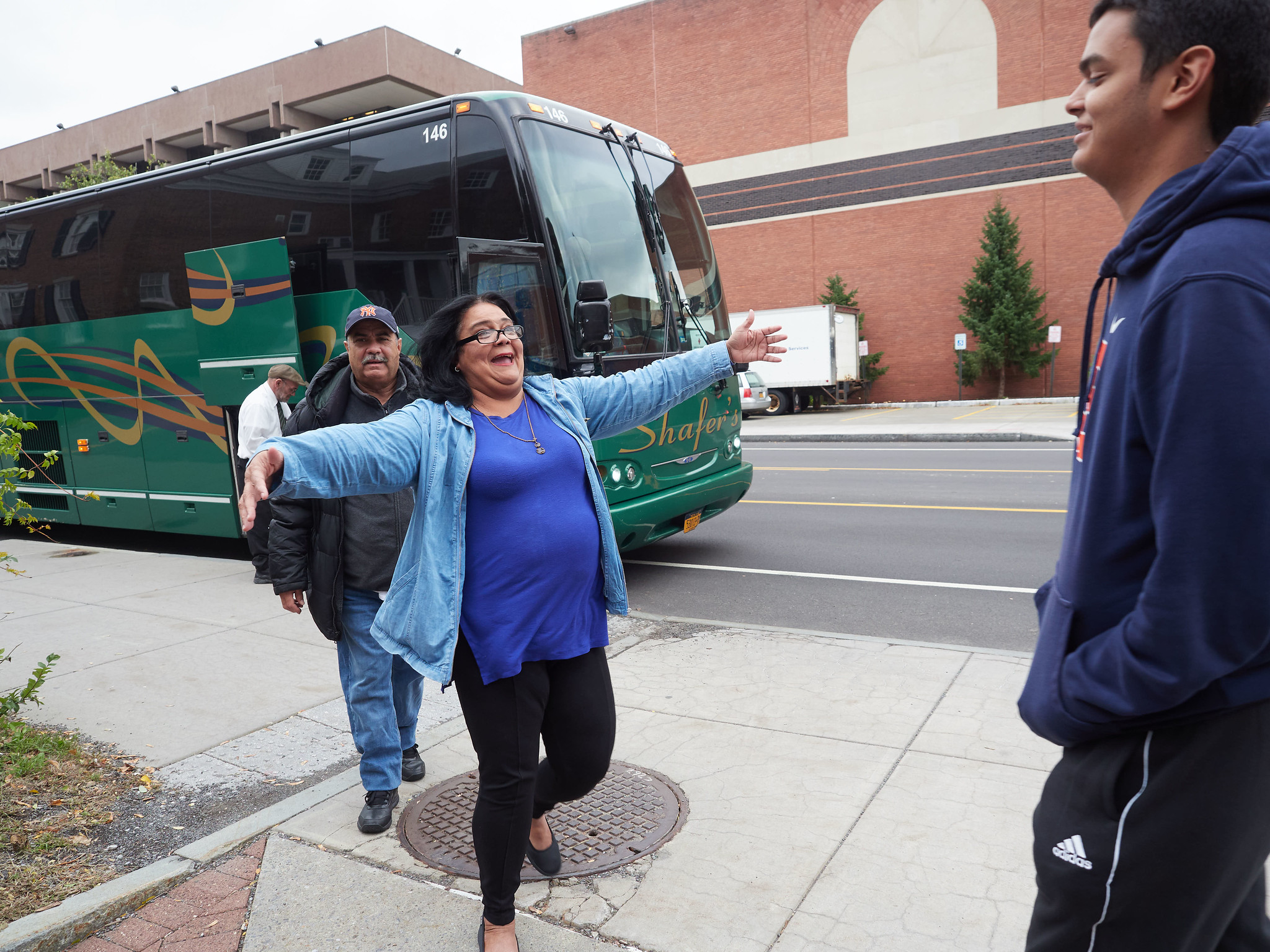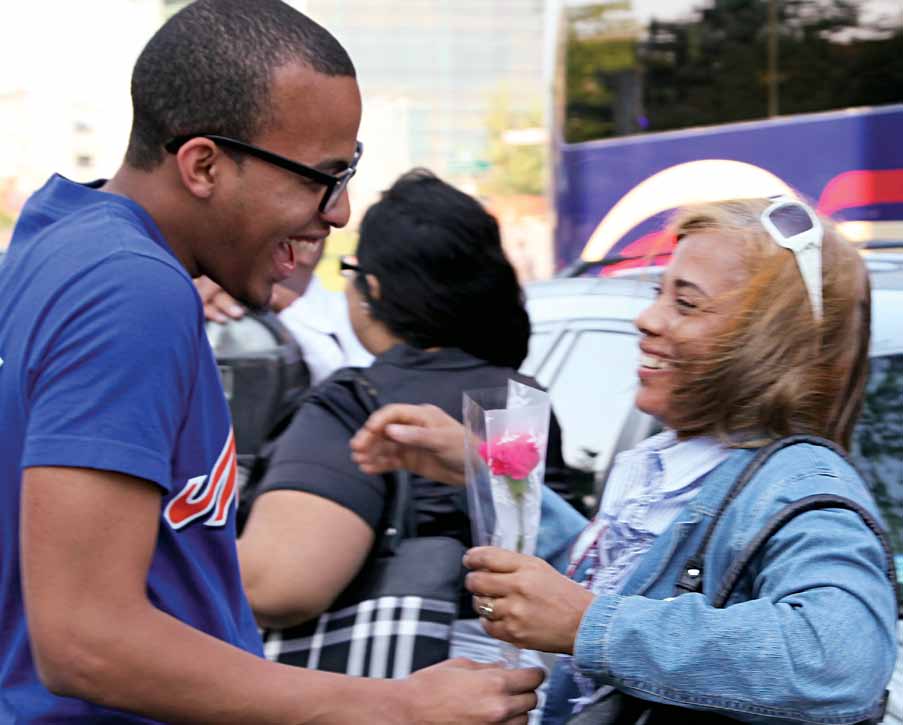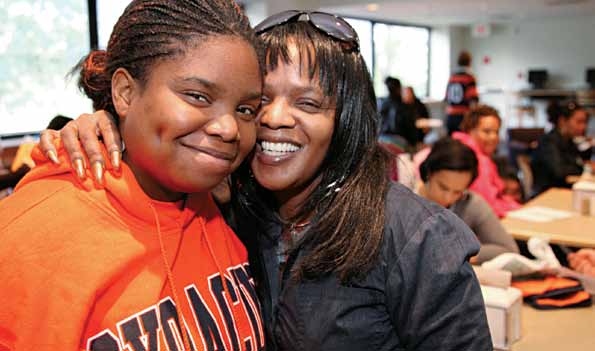Project Transition engages families of first-generation, socio-economically disadvantaged, and under-represented students from greater New York City in Syracuse University’s Arthur O. Eve Higher Education Opportunity Program and TRIO Student Support Services.
Project Transition enhances the college experience by acknowledging the important contribution of parents and families in student retention and overall success. Following a spring information session in New York City before students begin their time at Syracuse, participants are encouraged to participate in a series of free events both on and off campus—including Family Weekend and a Graduation Weekend dinner.
“I’m very grateful for this opportunity to learn more about my child’s education at Syracuse University. I am better aware of the programs and what’s expected of her. This has helped me and my daughter tremendously. I will be able to help through her next four years in college. Through this weekend, I know I want her to study abroad and encourage her to take advantages of the internships that are offered.”
—Project Transition parent

The results have been stunning, and today’s annual program participants have between a 95%-97% graduation rate. Project Transition has served more than 800 students and 2,100 family members, and was recognized by the U.S. Department of Education as a best practice.
Programming for Prospective and New Students
Informational group meetings are held in New York City throughout the spring semester, for both prospective students/families and those accepted to Syracuse University. All HEOP/SSS students participate in SummerStart before their first fall semester; Project Transition families are invited to a welcome reception in July when SummerStart begins.
Families are brought to campus for Family Weekend, typically in September or October. Families are encouraged to attend University and school/college activities, and a reception and other family activities are hosted by Project Transition.
Families are continually surveyed, especially through their student’s first semester, on their informational wants and needs.
Programming for Sophomores, Juniors, and Seniors
Project Transition holds family dinners in New York City for families of current students, to keep them connected to each other and to Syracuse University. These families also serve as ambassadors at prospective student events.
During senior year, families are brought to campus for Graduation Weekend, and attend a special Project Transition senior dinner with family and student recognition.
“After meeting with some of my professors and my counselor, my mom returned to the Bronx feeling relieved that I was part of a supportive and welcoming family in my new home away from home. It made my life easier because after that she only called twice a day.”
—Project Transition student



Project Transition began as a partnership between Jan Strauss Raymond ’65 and Charles (Chip) V. Raymond Jr. ’66, the Citigroup Foundation, and the HEOP and SSS programs. Syracuse University has made a commitment to continue and expand the Project Transition program because it reflects our core commitment to ensure that all first generation students and their families have a strong connection to campus and the confidence to achieve academic success. Additional recruitment activities will be woven into the Project Transition program as a part of its expansion.
“Family Weekend at Syracuse University was a wonderful experience, and I like to thank you for making it possible. This weekend was filled with many activities, such as Dean’s breakfasts, concerts, study abroad information sessions, sports events, and much more. I was able to enjoy all the activities with your help and kindness. As a result, I am now a happier parent because I personally know my daughter’s college life. Sending your child away to school is difficult and I thank you for making it a bit easier!”
—Project Transition parent
Syracuse University is seeking support to sustain this highly successful program with an endowment to permanently fund the program’s annual budget and allow it to expand over time.